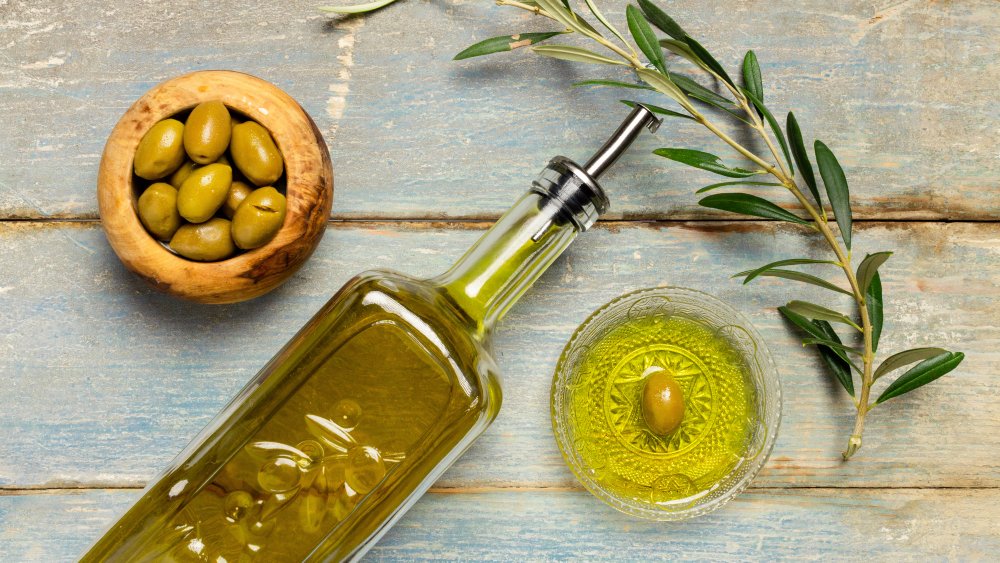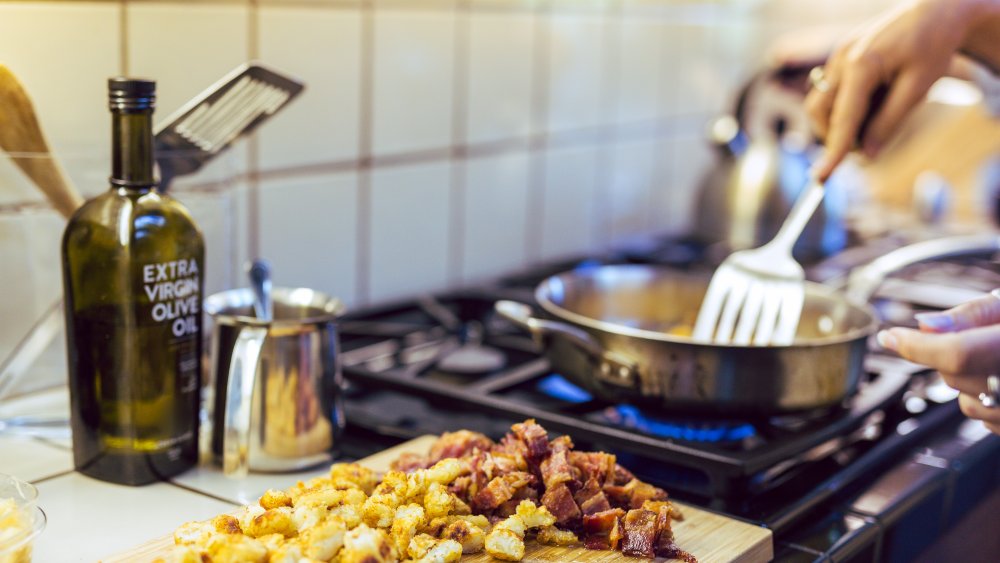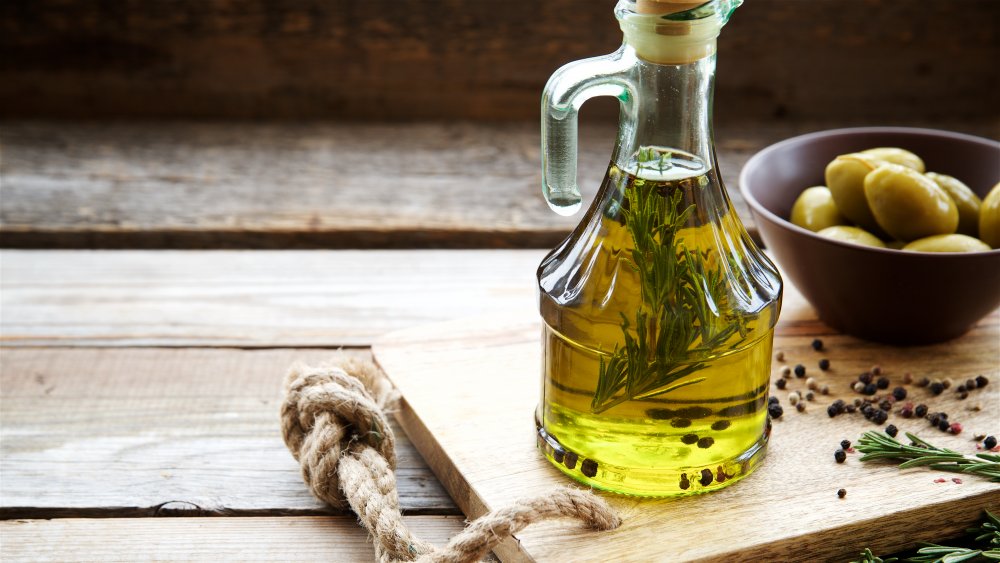You've Been Storing Olive Oil Wrong The Entire Time
Olive is one of those essentials that no proper cook's kitchen is complete without. It's one of the most versatile cooking oils out there, and works well in everything from cooking Italian pasta dishes to whipping up salad dressings. While good olive oil can be purchased for as little as 10 bucks, some types can also be pretty expensive and command much higher prices (via NY Magazine)
The last thing anybody wants is to buy a nice bottle of olive oil and then have it go bad before the bottle is finished. How you go about storing your olive oil can make all difference in whether it's good to the last drop or spoiled before the bottle's even half empty.
Keep your olive oil away from the stove
Because olive oil is so great for cooking with (as long as you're doing it right), keeping it on the counter right next to your stove might seem like the perfect place. While this does make for incredibly easy access, you're doing a real disservice to your olive oil's flavor. Martha Stewart advises against keeping your olive oil on the counter next to your stove because you're regularly exposing it to high levels of heat, which can make it go rancid faster.
So if heat is the enemy of olive oil, perhaps you're thinking that keeping it in the fridge will help preserve it longer. Not so fast — this too is going to be a bad idea. According to Still Tasty, storing your olive oil in the refrigerator probably won't affect its taste, but it might cause it to become cloudy and possibly even solidify. Who has time to wait for their solidified olive oil to return to liquid form?
Keep your olive oil out of direct sunlight and air exposure
Light, temperature, and oxygen are all enemies of olive oil. So if you really want to make your olive oil go the distance, then it's key that you distance it from these culprits as much as possible. In addition to keeping your olive oil away from your stove, it's recommended that you avoid keeping it near a window or other areas of direct light, and instead, store it in a kitchen cupboard or on a shelf where the sun doesn't hit it (via California Olive Ranch).
Opting for a dark glass bottle or ceramic container will also prevent sunlight from getting in, and while those pour spouts are handy, they could possibly let too much air in. If you're going to use a pour spout, make sure it's on a bottle that you think you'll finish sooner rather than later.
Storing any food properly can make all the difference, and if you follow these simple tips. you'll find that your olive oil will taste just as delicious at the end as when you first opened it.


